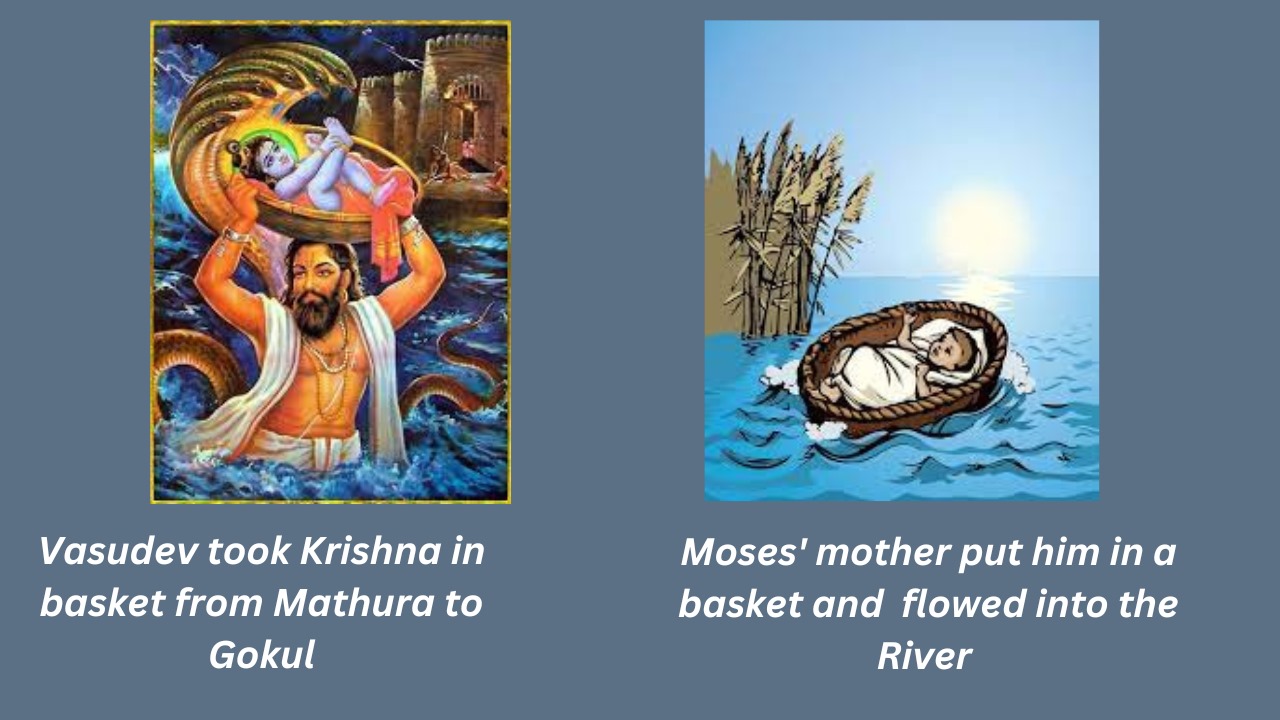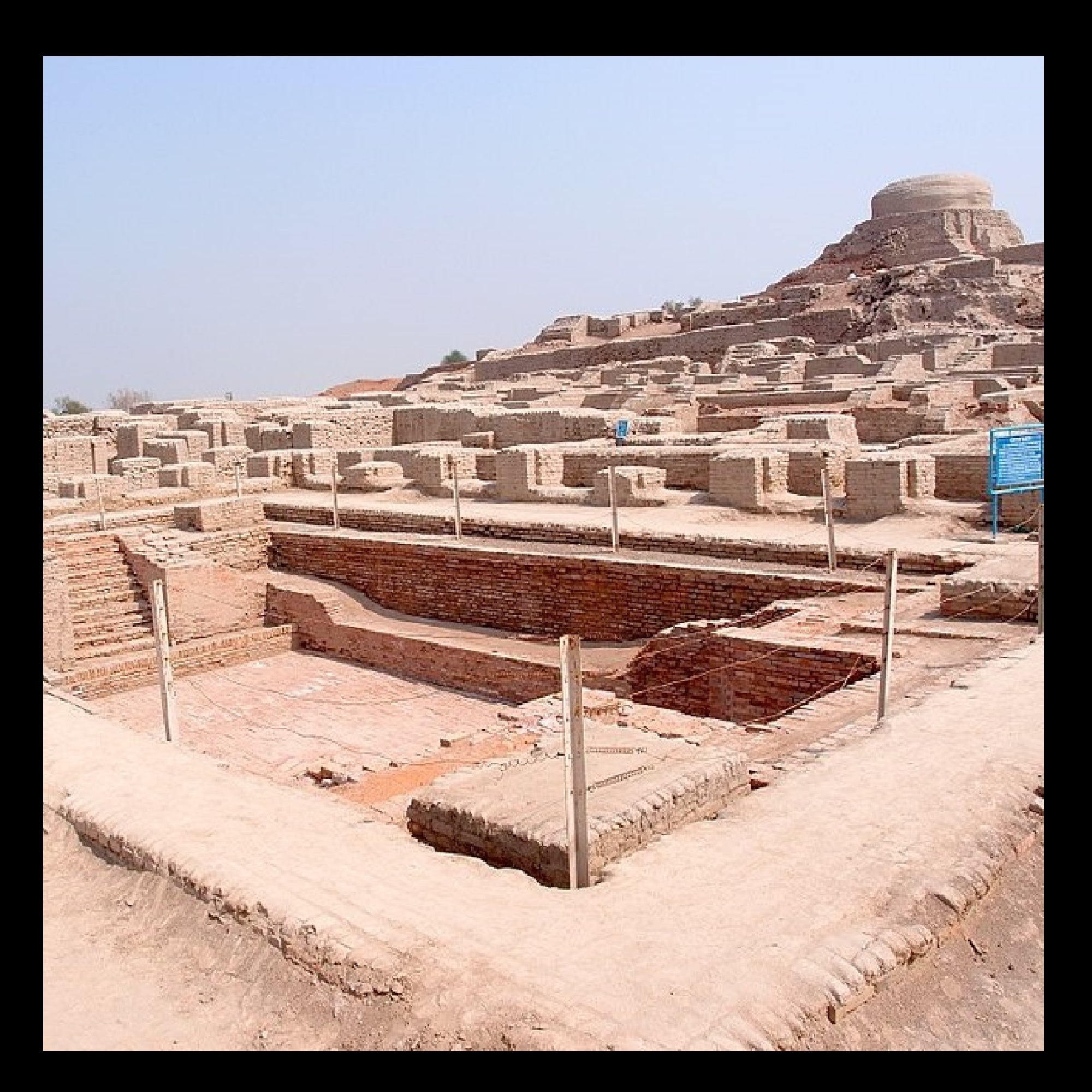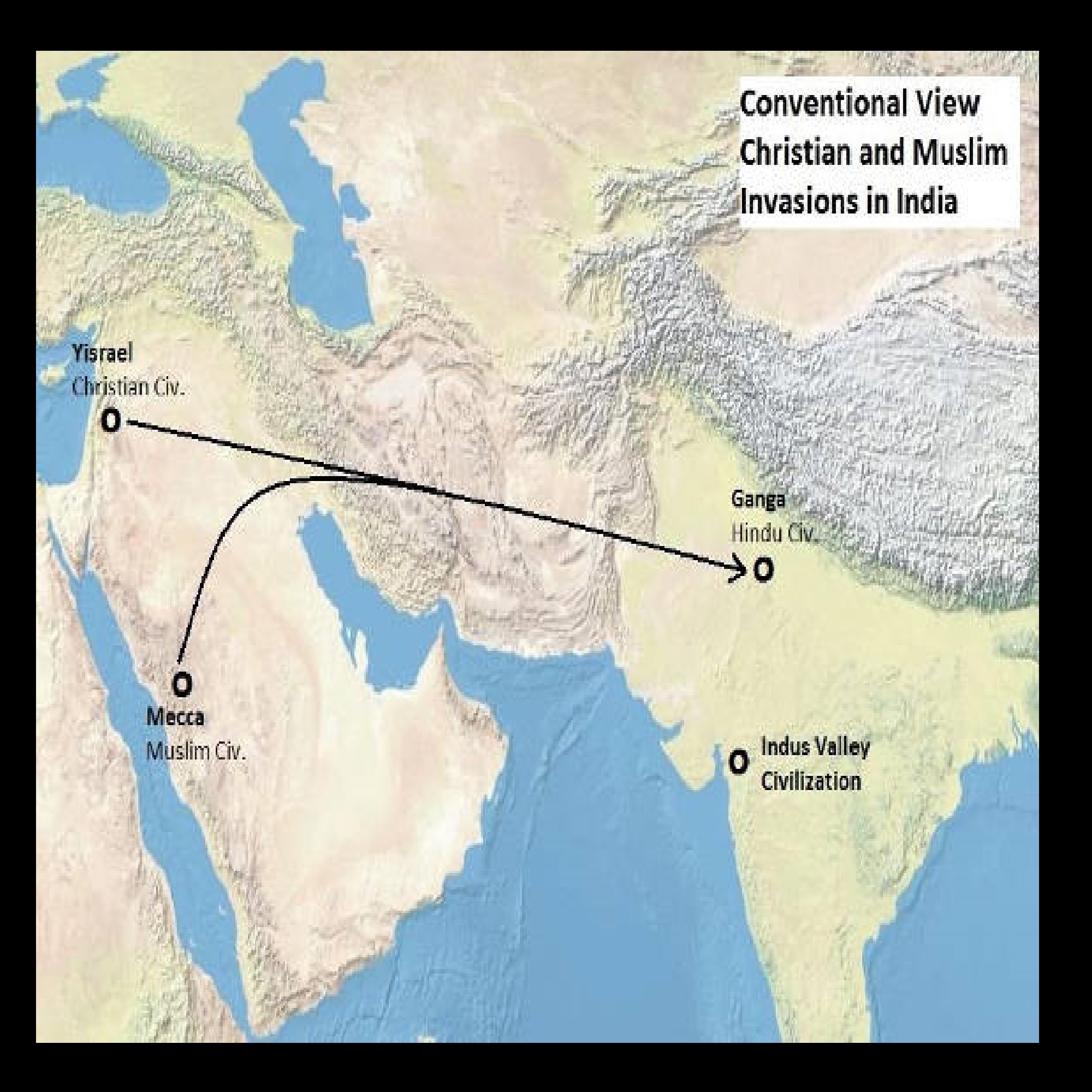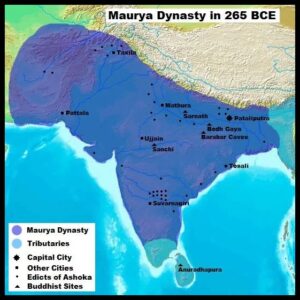
Why has the Indian Civilization got smaller?
Does the decline of India in the last 1000 years have philosophical roots?
India’s Decline: Philosophical Roots?
We know that the cities of Indus valley were about 10 times larger than those of Sumer and Egypt; when they were only cities states in Greece, at that time the Mauryan Empire flourished in India; and when the Roman empire existed in the west, at that time we had the classically of Hinduism in the Gupta empire. The Western Civilization went into a low key after this time. However, the Indian Civilization had Harsha and other empires. Beginning 10th century CE though we can see a decline in of the Indian civilization.
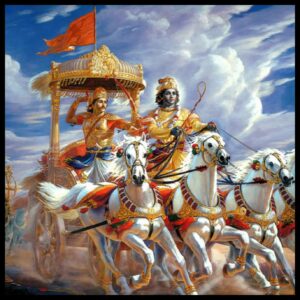
Arjuna must engage in war because he was a Kshatriya. But what afterwards?
Hindu philosophy | Krishna | Arjuna | Para-Brahman | Desires
Question is whether the present Hindu philosophy may be responsible for this decline? In Gita Krishna says to Arjuna “You must engage in war because you are born Kshatriya.” The basic understanding is that every human being is born with certain vasanas or desires from his or her past lives and has to act in this life to exhaust those desires so that he can become free. But this verse is silent on what does one do after the exhaustion of once inherited desires. Does one become introvert and enjoy the bliss or does one become extrovert and work for the progress of the human civilization?

Brahman is desirous or desireless?
The answer to this question depends upon whether we consider Para-Brahman to be desirous or free of desires. If Para-Brahman is desirous then we should engage to fulfil the desires of Para-Brahman. But if Para-Brahman is desireless then we may become introvert and enjoy the bliss because there is nothing more to be done.
Chhandogya Upanishad | Taittiriya Upanishad | Brihadaranyaka Upanishad | Yoga Vasishta | Para-Brahman desireless
We do not fight any support for the idea that Para-Brahman is desireless. The Chhandogya Upanishad says “In the beginning, dear boy, this was Being alone, one only, without a second… That Being willed, ‘May I become many, may I grow forth.’” [6:1:4] So, the being willed there was some desire in it, some will in it which led it to become many.

Why did Para-Brahman undertake penance?
The Taittiriya Upanishad says “The Para-Brahman desired I may become many. He undertook penance. He created all this by undertaking penance. Then He entered the creation.” [6:1] So He undertook penance to create but why did he want to create if He had no desires?
The Brihadaranyaka Upanishad says “In the beginning this was Self alone… But he felt no delight… He wished for a second… He then made this his Self to fall in two, and thence arose husband and wife.” [1:4:1-3] So, he found no delight in being alone.
The Yoga Vasishta says “This Brahman obtains to growth in-itself by-itself.” [3:13] So why does Para-Brahman obtain to growth?
Even the root “Br-” “ब्र” means “to grow.”
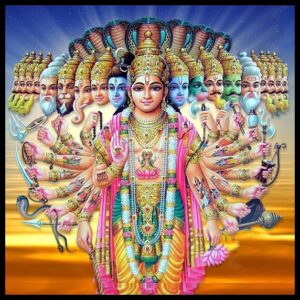
Why Para-Brahman manifested as Apara-Brahman if He had no desires?
Vedas | Upanishads | Apara-Brahman| Para-Brahman | Katha Upanishad | Para-Brahman is desireless
The Vedas and Upanishads say that Para-Brahman has desires. It can be countered that these verses relate to Apara-Brahman and not to Para-Brahman. In the Hindu tradition there is a Para-Brahman which is absolute and an Apara-Brahman which is its second level manifestation. But that begs the question because why did Para-Brahman manifest as Apara-Brahman? If Para-Brahman has no desire then why should He manifest as Apara-Brahman? And, if He manifests as Apara-Brahman due to some desires then Apara-Brahman continues to have those desires.
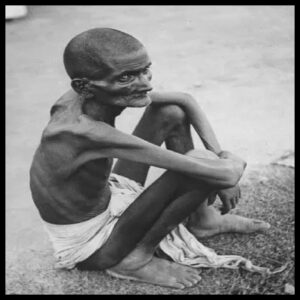
Brahman has desires but is not tainted by them?
Contrary to these statements, there are other statement in the Upanishads that seem to indicate the Para-Brahman is desireless. The Katha Upanishad says “As the sun, the eye of all the world, is not tainted with the stains in external objects seen by the eyes, so, the one internal atman of all living things is not tainted with the world’s grief, being external to it” (2:2:11). Here the word for “tainted” is “लिप्त” which means “smeared, anointed, soiled, defiled.” So, the Para-Brahman does not get defiled or soiled by its activity. The Para-Brahman has pure desires and does not get soiled by the activity. This verse does not establish the Para-Brahman is desireless.
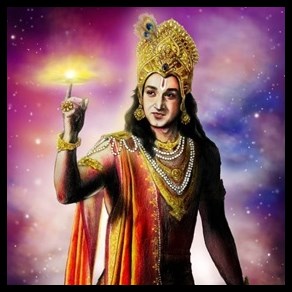
Krishna engaged in action because He seeks the growth of his larger self or the universe.
Krishna | Arjuna | Heaven | Earth | Vivek Chudamani Sankara | Chhandogya Upanishad | Shankaracharya
Krishna says “O Arjuna, there is nothing in the three worlds — heaven, earth, and the lower regions — that should be done by Me, nor there is anything unobtained that I should obtain, yet I engage in action.” [3:22] Here Krishna is saying that his vasanas have got exhausted. He feels one with the world. But why does he engaged in action? He has to engaged in action because he is seeks the growth of his larger self or the universe. Otherwise there is no need for Krishna to engage in action. Still the question remains, why does Krishna says there is nothing in the three worlds that should be done by Him? My sense is that these statements are made to help a persons disengage from his personal desires and to connect with the larger desires of the Para-Brahman. It is like a manager having to disengage which his personal likes and dislikes and to connect with the desires of his boss.
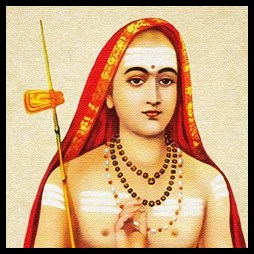
Sankara said that the world is unreal yet engaged in action. Why?
In Vivek Chudamani Sankara says “Brahman alone is the real and the phenomenal world is unreal.” This means that there is more to the phenomenal world. If you want to have an apple or a banana that is good but that will not give you true happiness. True happiness will come when you connect with the desires of the Para-Brahman. So, Sankara despite having said that the world is unreal, engaged in action throughout his life.

“There is no change in the Para-Brahman.” But qualities of Para-Brahman change.
The Chhandogya Upanishad says, “there is no change in the Being which implies that it cannot become many: the reality is only clay.” [6:1:4]. Now, this implies that It cannot become many because that would imply change in the Para-Brahman. Example is given that when you make pot from the clay the essence remains the clay. This is true but the quality of the clay changes. The clay can be soft, burnt, porous, solid, etc. So, this does not mean that clay is changeless. Likewise, when it said “there is no change in the Being,” I would be interpreted as there is no change in, say, the total mass of the being while there may be change in its qualities and Being continues to desire its own qualitative growth.
Inherited desires | Hindu tradition | India’s decline| Quran | Desirous Para-Brahman
The question is what next after one has exhausted his inherited desires? Does one become introvert and enjoy his bliss and one become extrovert and continues to work for the progress of the universe? My sense is that the Hindu tradition stresses that Para-Brahman does not desire anything. Therefore, our greatest people have become introvert. They have ceased to work for the development of this civilization and of humankind and India has declined.
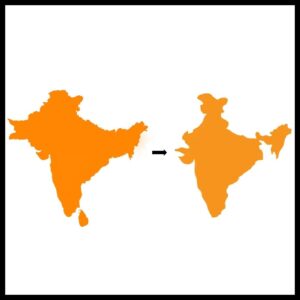
Is Mayavaad responsible for India’s decline over the last thousand years?
I have meet a number of monks who say “if you desire, then you may engage in action; if you do not desire, then don’t engage in action.” The message is that action is worthless unless you have to exhaust your own desires. The focus is on the self, not on the humankind or Para-Brahman. This focus on the self actually negates the desires of the Para-Brahman. Let us say the Para-Brahman desires that this universe evolves. But we say that Para-Brahman does not have any desires. Then we do not act as per the desires of Para-Brahman and become opposed to Para-Brahman. This opposition to the desires of the Para-Brahman maybe the philosophical root of India’s decline over the last thousand years.
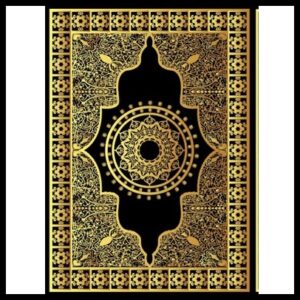
The Quran says Allah or Para-Brahman has desires. This is consistent with the Upanishads.
The Quran says “Did you think that We had created you for a playful purpose and that you were not to return to Us?” Here there is a clear statement that Allah created this universe for a purpose. This statement is consistent with the verses from the Upanishads telling of a desirous Para-Brahman and is contra the living tradition which say the Para-Brahman is desireless. The time has come for us to stop negating the desires of Para-Brahman and get the support of Para-Brahman in the growth and progress of India.
I have published a paper on this topic International Journal of Theology, Philosophy and Science
Visit our website: https://www.commonprophets.com/
For Videos: https://www.youtube.com/channel/UCN4sb3toJxNGPjmSubnwz_Q
For more information on the theory of Common Prophets, Please like my FB Page One God One 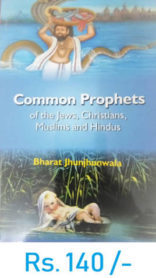 Religion, Subscribe my English channel One God One Religion, subscribe my Hindi Channel एक ईश्वर, and you may like to buy my book here.
Religion, Subscribe my English channel One God One Religion, subscribe my Hindi Channel एक ईश्वर, and you may like to buy my book here.




